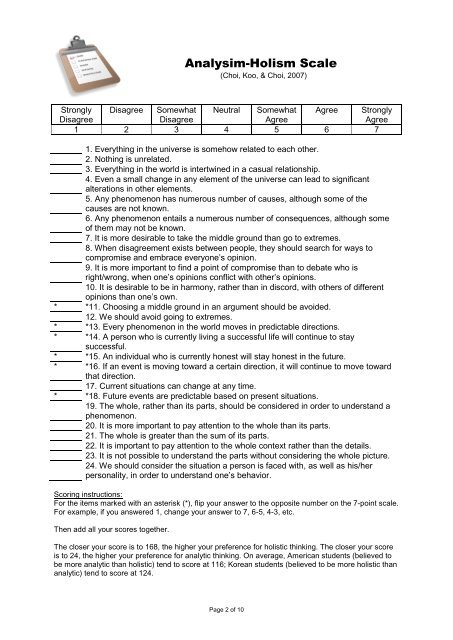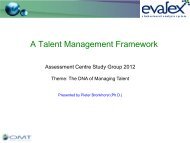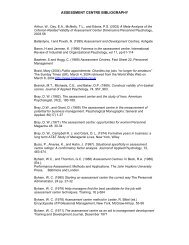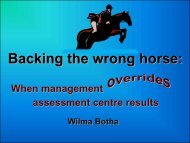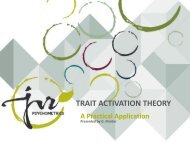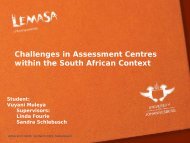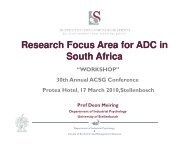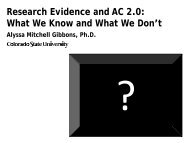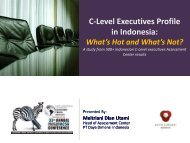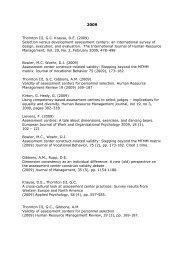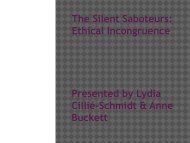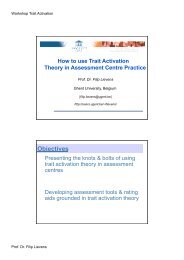Designing a Cross-cultural Training Programme for Assessors - ACSG
Designing a Cross-cultural Training Programme for Assessors - ACSG
Designing a Cross-cultural Training Programme for Assessors - ACSG
Create successful ePaper yourself
Turn your PDF publications into a flip-book with our unique Google optimized e-Paper software.
Analysim-Holism Scale(Choi, Koo, & Choi, 2007)Strongly Disagree Somewhat Neutral Somewhat Agree StronglyDisagreeDisagreeAgreeAgree1 2 3 4 5 6 71. Everything in the universe is somehow related to each other.2. Nothing is unrelated.3. Everything in the world is intertwined in a casual relationship.4. Even a small change in any element of the universe can lead to significantalterations in other elements.5. Any phenomenon has numerous number of causes, although some of thecauses are not known.6. Any phenomenon entails a numerous number of consequences, although someof them may not be known.7. It is more desirable to take the middle ground than go to extremes.8. When disagreement exists between people, they should search <strong>for</strong> ways tocompromise and embrace everyone’s opinion.9. It is more important to find a point of compromise than to debate who isright/wrong, when one’s opinions conflict with other’s opinions.10. It is desirable to be in harmony, rather than in discord, with others of differentopinions than one’s own.* *11. Choosing a middle ground in an argument should be avoided.12. We should avoid going to extremes.* *13. Every phenomenon in the world moves in predictable directions.* *14. A person who is currently living a successful life will continue to staysuccessful.* *15. An individual who is currently honest will stay honest in the future.* *16. If an event is moving toward a certain direction, it will continue to move towardthat direction.17. Current situations can change at any time.* *18. Future events are predictable based on present situations.19. The whole, rather than its parts, should be considered in order to understand aphenomenon.20. It is more important to pay attention to the whole than its parts.21. The whole is greater than the sum of its parts.22. It is important to pay attention to the whole context rather than the details.23. It is not possible to understand the parts without considering the whole picture.24. We should consider the situation a person is faced with, as well as his/herpersonality, in order to understand one’s behavior.Scoring instructions:For the items marked with an asterisk (*), flip your answer to the opposite number on the 7-point scale.For example, if you answered 1, change your answer to 7, 6-5, 4-3, etc.Then add all your scores together.The closer your score is to 168, the higher your preference <strong>for</strong> holistic thinking. The closer your scoreis to 24, the higher your preference <strong>for</strong> analytic thinking. On average, American students (believed tobe more analytic than holistic) tend to score at 116; Korean students (believed to be more holistic thananalytic) tend to score at 124.Page 2 of 10


